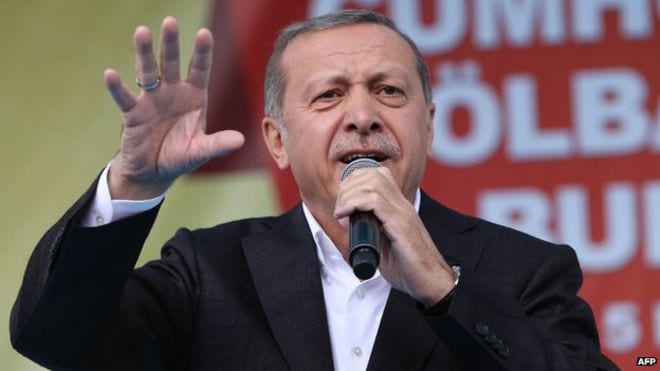By Ladane Nasseri
May 25 (Bloomberg) — Iranian filmmaker and opposition supporter Jafar Panahi, who was invited to be a juror at the Cannes film festival, will be freed on bail late today, weeks after directors including Steven Spielberg, Francis Ford Coppola and Martin Scorsese called for his release.
A bail equivalent to $200,000 was posted, Panahi’s wife, Tahereh Saeedi, told the Iranian Labour News Agency today. “Based on what we are told, he will be released tonight between 7 and 11 p.m.” Iran time.
“It has been agreed for him to be released on bail and the legal process and the judicial steps are being followed,” Prosecutor General Abbas Jafari-Dolatabadi was quoted as saying yesterday by the state-run Iranian Students News Agency. He didn’t say when the release or further court proceedings in the case would take place.
Panahi, a backer of the movement that grew out of protests against last year’s disputed re-election of President Mahmoud Ahmadinejad, was detained on March 2. Charges against him include making a movie without a permit and wearing a green scarf, a symbol of the opposition, at a film festival abroad, his wife said last month.
Saeedi, who was detained with Panahi and later released, has said he was planning to direct a film about the problems of a family of four amid the political unrest prompted by Ahmadinejad’s victory in the June 12 vote.
Spielberg, Coppola and Scorsese were among directors who signed a petition last month urging the Iranian government to release Panahi, saying filmmakers in Iran “should be celebrated, not censored, repressed and imprisoned.”
‘Attack on Art’
Fellow Iranian film director Abbas Kiarostami, whose film “Certified Copy” premiered at the Cannes film festival, also made an appeal at the event last week for Panahi’s release, the U.K.’s Guardian reported.
“When a filmmaker is imprisoned, it is an attack on art as a whole,” Kiarostami told reporters, according to the newspaper. “We need explanations. I don’t understand how a film can be a crime, particularly when that film has not been made.”
French actress Juliette Binoche, who starred in Kiarostami’s film and won the best actress award for the role at Cannes, wept when she heard that Panahi started a hunger strike on May 16, Agence France-Presse reported. Binoche brandished a sign with the name of Panahi as she faced the audience after receiving her award, AFP said on May 23.
Several of Panahi’s films have been banned in Iran, including “Crimson Gold,” which looks at the privileges of Iran’s upper class through the eyes of a pizza-delivery man and won the Prix Un Certain Regard at Cannes in 2003. Also banned is “The Circle,” which portrays the harsh aspects of life for several women in the Islamic nation. It won the Golden Lion award at the 2000 Venice film festival.
More recently, Panahi won the second-highest award at the 2006 Berlin film festival with “Offside,” a comic tale about a government ban on women and girls attending soccer games.
–Editors: Philip Sanders, Heather Langan
To contact the reporter on this story: Ladane Nasseri in Beirut at [email protected].
To contact the editor responsible for this story: Peter Hirschberg at [email protected].
The Bloomberg





